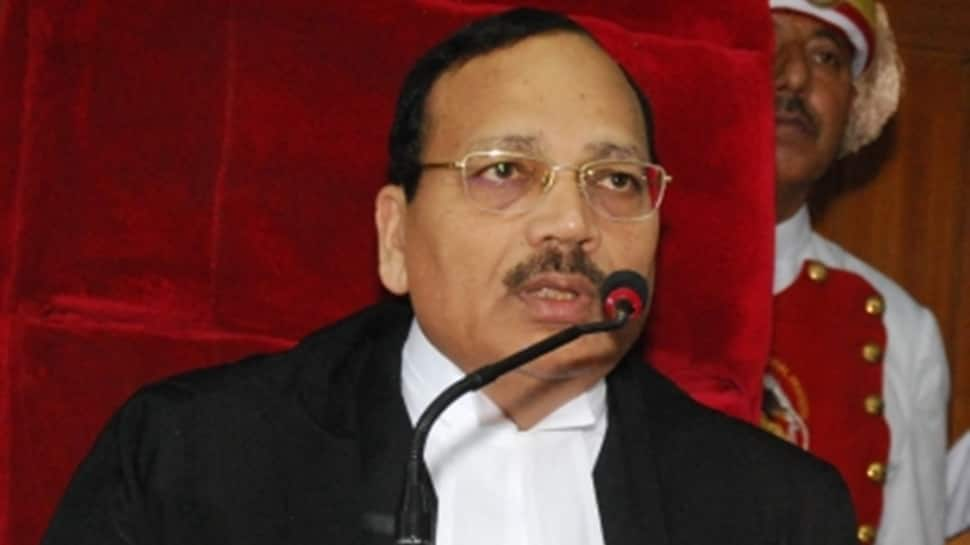Top Stories
Justice Surya Kant Selected as Next Chief Justice of India

Justice Surya Kant has been recommended as the next Chief Justice of India by current Chief Justice Bhushan R. Gavai. This nomination is part of the formal process preceding Justice Gavai’s retirement, scheduled for November 23, 2023. If approved by the government, Justice Kant will assume office on November 24, 2023, marking a significant transition in the Indian judiciary.
According to the Supreme Court’s official website, Justice Kant has substantial assets amounting to several crores. His net worth includes over Rs 8 crore (approximately $966,000) in fixed deposits and Rs 4.23 crore (about $511,000) in provident fund deposits. Additionally, he possesses approximately 1.1 kilograms of gold, agricultural land, and several residential properties across India.
Justice Kant’s assets are primarily held in fixed deposits and various real estate investments. His holdings include:
– A one-kanal house in Sector 10, Chandigarh
– Approximately 13.5 acres of agricultural land in Village Golpura, District Panchkula
– A 300 square yard plot in Sushant Lok-I, Gurugram
– A 500 square yard plot in Eco City-II, New Chandigarh
– A ground floor and basement in a 285 square yard house in Greater Kailash-I, New Delhi
– A 192 square yard house in Sector 18-C, Chandigarh
– A 250 square yard house in DLF-II, Gurugram
– 1/3 share in a 12-acre ancestral agricultural land and house in Village Petwar, District Hisar
– 1/3 share in a 250 square yard house in Urban Estate-II, Hisar
In terms of financial assets, Justice Kant holds 16 fixed deposits totaling Rs 4.11 crore (about $496,000) in his name, alongside his wife’s deposits amounting to Rs 1.96 crore (around $236,000). His wife also has a public provident fund account totaling Rs 49.90 lakh (approximately $60,000) and a general provident fund account valued at Rs 3.74 crore (roughly $450,000).
As the senior-most judge of the Supreme Court, Justice Kant will serve as Chief Justice until his retirement on February 9, 2027. His appointment aligns with customary practices, where the Law Ministry requests a recommendation from the incumbent Chief Justice regarding the next senior-most candidate.
Justice Kant, born on February 10, 1962, in Haryana, began his legal career in 1984 after obtaining his law degree from Maharishi Dayanand University. He initially practiced at the District Court in Hisar and later moved to the Punjab and Haryana High Court. His legal expertise spans constitutional, service, and civil matters, and he has represented various entities, including universities and banks.
Notably, Justice Kant became the youngest Advocate General of Haryana on July 7, 2000, and was appointed as a Senior Advocate in March 2001. He was elevated to permanent judge of the Punjab and Haryana High Court on January 9, 2004, and has since held several influential positions, including serving on the Governing Body of the National Legal Services Authority (NALSA).
On May 24, 2019, Justice Kant was elevated to the Supreme Court, and he has been actively involved in legal services as the Chairman of the Supreme Court Legal Services Committee since November 12, 2024. His extensive career and forthcoming appointment as Chief Justice indicate his significant role in shaping India’s legal landscape in the years to come.
-

 World5 months ago
World5 months agoSBI Announces QIP Floor Price at ₹811.05 Per Share
-

 Lifestyle5 months ago
Lifestyle5 months agoCept Unveils ₹3.1 Crore Urban Mobility Plan for Sustainable Growth
-

 Science4 months ago
Science4 months agoNew Blood Group Discovered in South Indian Woman at Rotary Centre
-

 World5 months ago
World5 months agoTorrential Rains Cause Flash Flooding in New York and New Jersey
-

 Top Stories5 months ago
Top Stories5 months agoKonkani Cultural Organisation to Host Pearl Jubilee in Abu Dhabi
-

 Sports4 months ago
Sports4 months agoBroad Advocates for Bowling Change Ahead of Final Test Against India
-

 Science5 months ago
Science5 months agoNothing Headphone 1 Review: A Bold Contender in Audio Design
-

 Top Stories5 months ago
Top Stories5 months agoAir India Crash Investigation Highlights Boeing Fuel Switch Concerns
-

 Business5 months ago
Business5 months agoIndian Stock Market Rebounds: Sensex and Nifty Rise After Four-Day Decline
-

 Sports4 months ago
Sports4 months agoCristian Totti Retires at 19: Pressure of Fame Takes Toll
-

 Politics5 months ago
Politics5 months agoAbandoned Doberman Finds New Home After Journey to Prague
-

 Top Stories5 months ago
Top Stories5 months agoPatna Bank Manager Abhishek Varun Found Dead in Well









